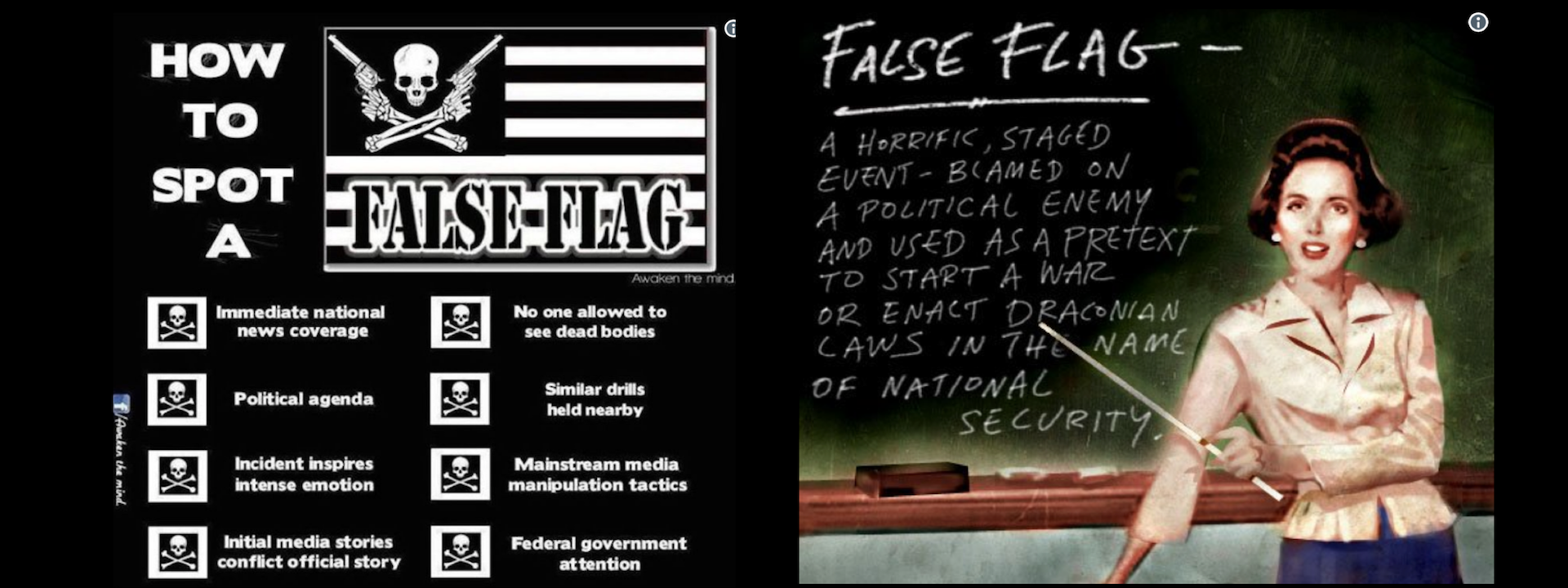#TrollTracker: Stale Narratives In Response to Expelled Diplomats
Pro-Kremlin trolls compare the Skripal case to Iraq War and a #falseflag to start a war with Russia.
#TrollTracker: Stale Narratives In Response to Expelled Diplomats

Pro-Kremlin trolls compare the Skripal case to Iraq War and a #falseflag to start a war with Russia.

On March 26, the United States President Trump ordered the expulsion of 60 Russian diplomats and the Russian consulate in Seattle to be closed citing the Kremlin’s involvement in the Skripal poisoning. He was joined in the announcement by 23 countries, including 16 European Union member states and 19 NATO allies. The move was in solidarity with the United Kingdom and in response to the poisoning of former Soviet spy Sergei Skripal, his daughter Yulia, and a number of surrounding British nationals on March 4 in the English town of Salisbury.
In response to the expulsion of diplomats, pro-Kremlin trolls intensified their social media campaign to vilify the Skripal investigation and deny Russian involvement.
https://www.instagram.com/p/BgzmALpAvGb/
Pro-Kremlin news outlets and Twitter accounts launched several campaigns to distort the public opinion about the ongoing investigation. One narrative compared the expulsion of the Russian diplomats to the Iraq war and argued that there was not enough evidence to implicate Russia in the poisoning. Another narrative suggested the chemical attack did not happen at all, using a small hashtag campaign #falseflag.
Iraq war analogy
Shortly after the expulsion announcement, pro-Kremlin Twitter accounts started comparing the Skripal case to the Iraq war in 2003.
An account under the handle of @ian56789, which tweets pro-Kremlin messages and has been frequently featured in RT’s articles, tweeted:
https://twitter.com/Ian56789/status/978272939132051457
https://twitter.com/Ian56789/status/978267481201696768
https://twitter.com/Ian56789/status/978275882912681984
Neil Clark, a Sputnik and RT contributor followed a similar train of thought:
In March 1999 it was Yugoslavia. March 2003 Iraq. March 2011 Libya. It’s March 2018 and the drumbeats of war are sounding once again. Syria, Iran or Russia or all three? Beware the Lies of March https://t.co/ElpNPh7lFY
— Neil Clark (@NeilClark66) March 26, 2018
Another frequent RT contributor, Charles Shoebridge shared a similar tweet:
https://twitter.com/ShoebridgeC/status/978262764648099841
Enrico Ivanov, a Twitter account of a pro-Kremlin activist, published several tweets evoking the fact that the United States made a strong international case regarding the threat of weapons of mass destruction in Iraq 2003 and subsequently never found any after it had invaded and deposed Saddam Hussein.
As the West is using the "Iraq WMD" script against #Russia what's the endgame this time?
— The Eurasianist ☦️ (@Russ_Warrior) March 26, 2018
This was not the first time pro-Kremlin activists used the Iraq War trope. Both RT and Sputnik News previously used it to dismiss the Skripal investigation.


The Iraq War narrative was false for several reasons. First of all, there is a cardinal difference between intelligence gathered in a hostile country in the Middle East back in 2003 and intelligence gathered in the United Kingdom in 2018 with full access to police and intelligence resources along with the medical records of the two main victims. Second, the expulsion of diplomats, while a significant deterioration in relations between the West and Russia, is not war.
#FalseFlag campaign
Another campaign in response to the news of the expulsion of 60 diplomats was the #FalseFlag campaign, under which pro-Kremlin trolls and cyborgs (human users who incorporate bot-like behavior in their own tweets) accused the UK of staging the entire incident in order to go to war with Russia.
@annaleclaire, who tweets on average 118 times a day, doesn’t provide any verifiable information and displays some cyborg-like activity patterns, tweeted the following:
https://twitter.com/annaleclaire/status/978320705472233473
Another user @therealbiostate, who tweets on average 114 times a day, posting some tweets using the ift.tt automation system interspersed with apparently authored tweets, tweeted:
https://twitter.com/therealbiostate/status/978281754174791685
Two partially automated accounts focused on spreading 9/11 conspiracy theories — 9/11 Truth False Flag and 911News — spread a Sputnik article that suggested the Skripal poisoning was a false flag.
eRT @SputnikInt: Russian envoy in Paris calls recent events over UK provocation false flag nerve agent Salisbury attack an 'awful provocation' https://t.co/KXyBhkxWHf#Salisbury #falseflag
.
— 911news (@911news) March 26, 2018
https://twitter.com/newsroll/status/978326563472199680
Apart from cyborg-like accounts, @Ian56789, who was active in spreading the Iraq War narrative was also active in promoting the #FalseFlag campaign.
https://twitter.com/Ian56789/status/978287414228803585
https://twitter.com/Ian56789/status/978277854118137856
The #FalseFlag narrative was further amplified by Ollie Richardson, a writer for Stalker Zone, a blog dedicated to the glorification of the Soviet Union, who tweeted:
https://twitter.com/O_Rich_/status/978275609523703808
Similar to the Iraq narrative, this was not the first time the #falseflag trope was used to dismiss the Skripal case, and Sputnik News published several articles previously featured in DFRLab’s reporting.

The official line
Following the expulsion, the spokesperson for Russia’s Ministry of Foreign Affairs posted on Facebook and accused the EU and NATO member states of “provocation” and “hypocrisy”, promised a response, but maintained Russia’s innocence.
https://www.facebook.com/maria.zakharova.167/posts/10216264110425110?pnref=story
Similar sentiment was expressed by the Russian Ambassador to the United States Anatoly Antonov, who said:
“I can say that the U.S. understands nothing other than strength. I think that the response should be adequate. Moscow will take the appropriate decision.”
Kremlin-funded RT maintained a more agitated editorial tone and published an interview by its own commentator George Galloway titled, “U.S. expulsion of Russian diplomats is ‘declaration of war.’”
Conclusion
These findings demonstrated that the Skripal case and the United Kingdom’s allies and partners’ diplomatic response mobilized the Kremlin and its trolls in an incoherent attempt to establish a defensive narrative. Each Kremlin or pro-Kremlin actor pushed the idea that the Skripal attack cannot have been carried out by Russia, and that it must, therefore, be a “false flag” or a clandestine attempt to start a war with Russia.
Follow along for more in-depth analysis from our #DigitalSherlocks.

